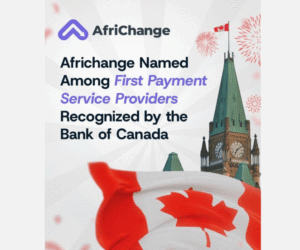Over the last decade, Nigeria’s financial industry has witnessed significant transformation powered by digital banking and innovative strategies. In the move to bank the unbanked, Nigerian banks, fintechs, and the Central Bank of Nigeria (CBN) have been on their toes to ensure stability in the sector.
At the Ibadan Tech Expo 2025, held on Saturday at the International Conference Centre, University of Ibadan, financial experts noted that the digital banking tool has been pivotal in driving financial inclusion in Nigeria. According to them, banks and fintechs have channelled financial technology to ensure everyone is included in the transformative journey.
In the panel session, titled “The Future of Digital Banking: Innovation, Inclusion and Intelligent Finance”, Olawale Omotosho, Director of Product Management at Moniepoint, explained that the sector has leveraged technology as not just a tool but a solution. These days, according to him, transfers and withdrawals can be done anywhere, powered by digital banking.
“One thing they bring is the fact that you can bank on your phone. Even if you don’t have a smartphone, you can use your phone via USSD. You can walk to a POS agent on the street without needing to visit the bank,” he added.

Olawale added that remote areas are not excluded, as they are a top target of financial inclusion.
“It’s basically financial assistance that is beyond payment. Access to loan/credit is available. And literally, when you go into the outskirts of a state or rural areas, you’ll easily see the blue colours of Moniepoint and other POS points,” he said.
Beyond their ideas in using digital banking for inclusion, experts mentioned that players in Nigeria’s financial system are living up to global trends.
Olumide Adaramoye, Head of CRM at Moniepoint, backed the claim with the advancement in instant payment. According to him, Nigerians are now used to quick transactions, driven by banks and fintech innovations and the need for customer satisfaction.
“Banks in Nigeria are definitely a bit more advanced than some other regions. Though there are still a lot of things left undone but they are still quite advanced,” he said.
In addition, Olumide acknowledged that fintechs in Nigeria and Africa have been ‘amazing’ even with the fact that they handle more users than their global counterparts. For instance, he pointed at M-Pesa in Kenya, which facilitates loads of transactions daily and holds a 98% record of successful transfers.


Also Read: How CBN’s Open Banking system will impact Nigerian fintechs: All you need to know.
Digital banking: on blending innovation with regulation
Beyond the digital banking revolution lies the need to build security and trust within the Nigerian financial system. There is, therefore, a need for banks and fintechs to build systems against cyberattacks and eradicate situations of failed transactions and missing funds.
The CBN recently released two revised guidelines structured to regularise the financial market. First is the ‘Guidelines for the Operators of Agent Banking in Nigeria,’ a policy that seeks to set standards in a market that has witnessed a surge in PoS operators post-COVID.
Another is the ‘Guidelines for the Operations of Electronic Payment Channels in Nigeria’, which seeks to establish minimum standards for ATM deployment, operation and maintenance. This is aimed at promoting customer safety and aligning with global practices. With these moves, the CBN is reinforcing acts of transparency, accountability and responsible operations in the sector.
Reacting to the regulations, Olumide said the move is to ensure that everyone stays on the right path while stabilising the players. It is also backed by the need to protect customers and ensure their funds are adequately managed.
“When it comes to banking, you want to try as much as possible to provide key services for customers. But when it comes to regulators, there are specific regulations everyone has to follow. So the CBN is trying to ensure that banks and fintechs play in the same ecosystem without issues,” he added.


Olumide also pointed out that the regulation is setting a level playing field for all players to eradicate a situation where a bank’s dominance can be damaging to other banks.
He mentioned that while banks and fintechs keep innovating as much as possible, the CBN is trying to regulate and ensure that these players find the market accommodating to keep on injecting new ideas.








